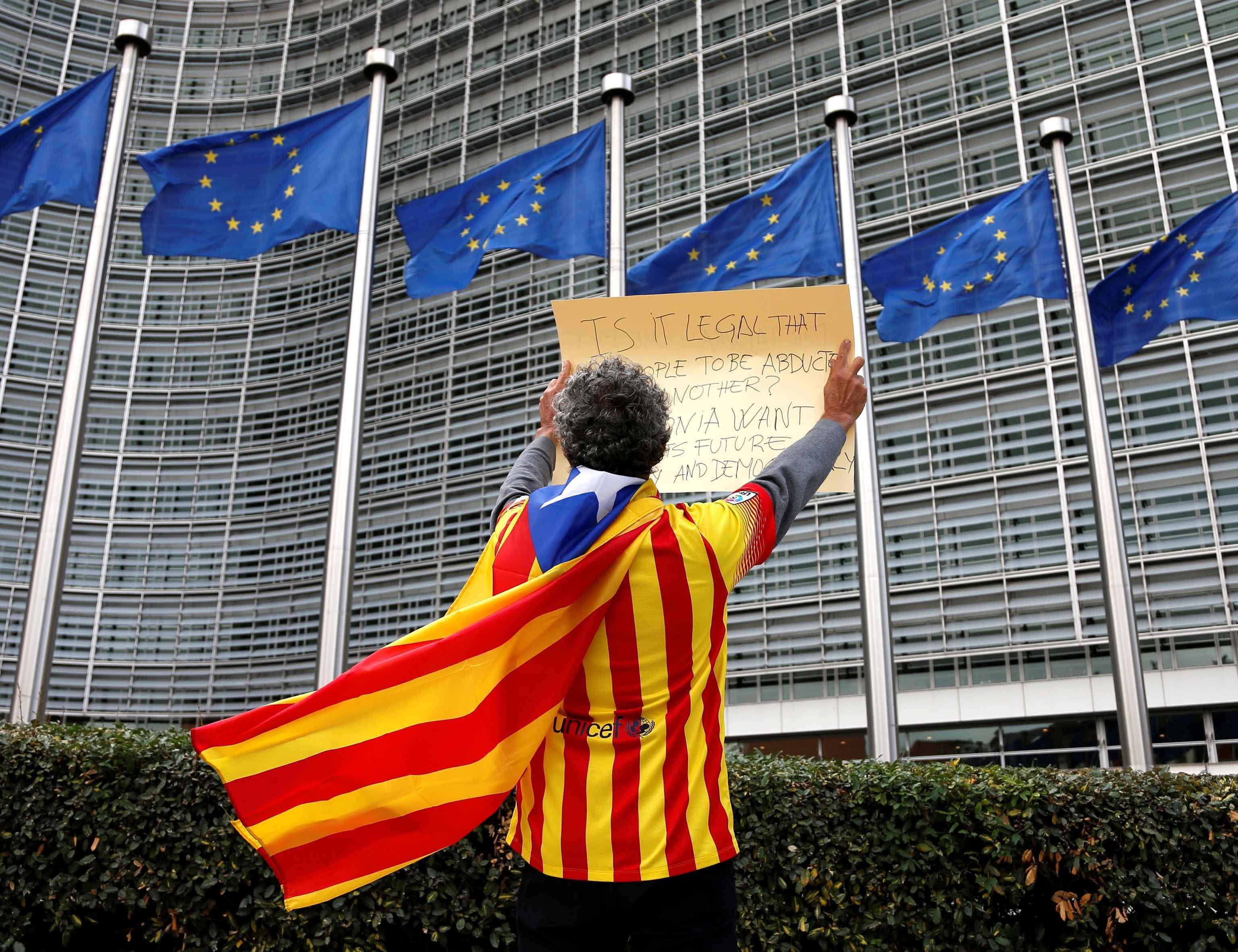
Spain vowed on Oct. 2 to stop Catalonia from declaring independence after a banned referendum that saw riot police use batons and rubber bullets, as the country grappled with its deepest crisis in decades.
The government of Prime Minister Mariano Rajoy was holding emergency talks after Catalan president Carles Puigdemont declared Oct. 1 that the region had won the right to break away from Spain.
Images of riot police beating up would-be voters with batons and firing rubber bullets to disperse crowds during Oct. 1's referendum in the wealthy northeastern region shocked many in Spain and its neighbors in Europe.
Puidgemont appealed on Oct. 2 for international mediation to help solve the crisis, and called for all police sent in to Catalonia for the vote to be removed.
In its first reaction on Oct. 2, the European Union urged all sides to "move very swiftly from confrontation to dialogue" and said violence should not be part of politics.
A jubilant Puigdemont said late Oct. 1 that 90 percent of voters taking part in the referendum had voted for independence for Catalonia, defying the police crackdown and the fierce opposition from Madrid.
The regional government said 2.26 million people actually took part in the vote, or just over 42 percent of the electorate in Catalonia.
Puigdemont said his people had "won the right to an independent state" in Catalonia, a region of 7.5 million people which accounts for one fifth of Spain's economic output.
But any attempt to unilaterally declare independence is likely to be opposed not just by Madrid but also a large section of the Catalan population which is deeply split on the issue.
His declaration sets the restive region on course for a deeper split with the Spanish government, after Rajoy reiterated his government's position that the vote was an illegal act, to which the state had reacted "with firmness and serenity."
Puigdemont has said he would now present the results to the region's parliament, which has the power to adopt a motion of independence.
Pro-separatist lawmakers have a narrow majority of 72 seats in the 135-seat Catalan parliament.
Reacting to the scenes of violence, Puigdemont said Spain's central government had "written a shameful page in its history with Catalonia" while several top figures in the far-left party Podemos called for Rajoy to resign.
At least 92 people were confirmed injured, two of them seriously, out of a total of 844 who needed medical attention, Catalan authorities said.
Shocking videos posted on social media showed police dragging voters from polling stations by their hair, throwing people down stairs and attacking Catalan firefighters protecting polling stations.
Further adding to tensions, unions and Catalan associations have called a region-wide strike for Oct. 3 due to "the grave violation of rights and freedoms," urging people to take to the streets.
While Spanish newspapers were unanimous in criticizing Puigdemont for pushing ahead with the referendum despite a court ruling it unconstitutional, they also took aim at Rajoy's handling of the crisis.
Conservative daily newspaper El Mundo said the government's wait-and-see strategy of sending the police had led to failure.
"It could not prevent dramatic images from going around the world," it said in an editorial.
Top-selling daily El Pais said Rajoy had shown an "absolute inability" to "manage the problem since the beginning of the Catalan crisis.”
Justice Minister Rafael Catala said the government could invoke Article 155 of the constitution which would allow it to suspend the powers of Catalonia's regional government to block any declaration of independence.
"That is a tool that is there... We have always said that we will use all the force of the law, all the mechanisms that the constitution and the laws grant the government," he said in an interview with public television.
Hundreds of people gathered in central Barcelona on Oct. 2 to protest against the police violence, chanting: "The streets will always be ours."
Some analysts said the images of the crackdown may help boost international support for the secessionists.
"Catalan secession remains unlikely, but separatist sentiment now has a momentum of its own, and the resulting institutional crisis will be severe and poses significant risks to Spain's economic outlook," said Federico Santi, an analyst at political risk consultancy Eurasia Group.